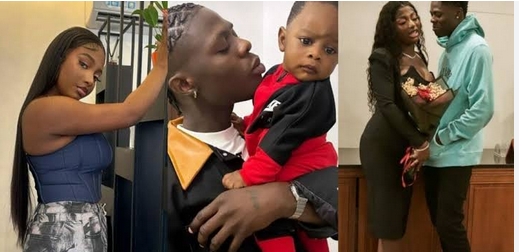The haunting Instagram post by Wunmi Aloba, widow of the late Nigerian star Mohbad, on Father’s Day wasn’t just a personal lament—it was a searing indictment of a system that fails artists and families. Her raw declaration, “Even in death, you still show up for me and Liam,” laid bare the cruel duality of grieving a phantom presence. At 24, thrust into single motherhood after Mohbad’s controversial death September 2023, Wunmi’s words pierced the performative noise of social media justice. She didn’t merely mourn; she accused, condemning the nurse allegedly implicated in her husband’s death while cradling their son in a world stripped of answers. This isn’t grief—it’s trauma weaponized by institutional neglect.
The Resurfaced Interview & Festering Injustice:
As Wunmi’s past interviews recirculate—filmed when hope still tinted her voice—Nigerians confront an uncomfortable truth: #JusticeForMohbad has become a hollow slogan. Twenty months after his death, investigations crawl while conspiracy theories accelerate. The Lagos police’s initial findings pointed to a lethal injection administered during a botched home treatment, yet zero convictions follow. Wunmi’s Father’s Day cry exposes the rot: a culture where artists are commodified until their deaths become content, and accountability evaporates in celebrity fog. How many more viral tributes must we endure before courts deliver what hashtags cannot?
Medical Negligence: A National Emergency in Microcosm:
Wunmi’s suffering transcends personal tragedy—it spotlights Nigeria’s lethal healthcare crisis. Mohbad’s death allegedly stemmed from an unqualified nurse administering drugs to manage his mental health struggles. This isn’t an anomaly; it’s systemic. Quack practitioners thrive in communities starved of affordable, regulated care. Mental health support remains a luxury, pushing desperate families into dangerous alternatives. This is the opinion that must be screamed: Until Nigeria funds psychiatric facilities, licenses medical personnel aggressively, and punishes malpractice, more widows like Wunmi will bury partners to preventable deaths. Grief counseling and child therapy (as experts urge for Liam) cannot heal wounds opened by a broken system.
The Unseen War on Young Widows:
Wunmi’s revelation—“made a single mother at 24”—unmasked the economic violence compounding her loss. With Mohbad’s royalties tangled in legal battles and no spousal pension, she fights not just grief, but destitution. Nigeria’s lack of social safety nets for widows forces women into vulnerability. Her Instagram post, viewed by millions, is a survival tactic as much as a eulogy; a plea for visibility in a society that discards young widows. The opinion here is unambiguous: a nation that venerates dead artists but abandons their families is morally bankrupt.
Wunmi’s Father’s Day message was a masterclass in devastation—but it must be a catalyst. Justice requires prosecuting every individual implicated in Mohbad’s death. Healing demands funded trauma centers for Liam and thousands like him. Prevention necessitates healthcare reform that treats artists as humans, not trends. Nigeria’s leaders, entertainment industry, and citizens must choose: perpetuate cycles of performative outrage, or build structures that protect the living. Wunmi’s love for Mohbad endures. Our complicity in his erasure must not.


